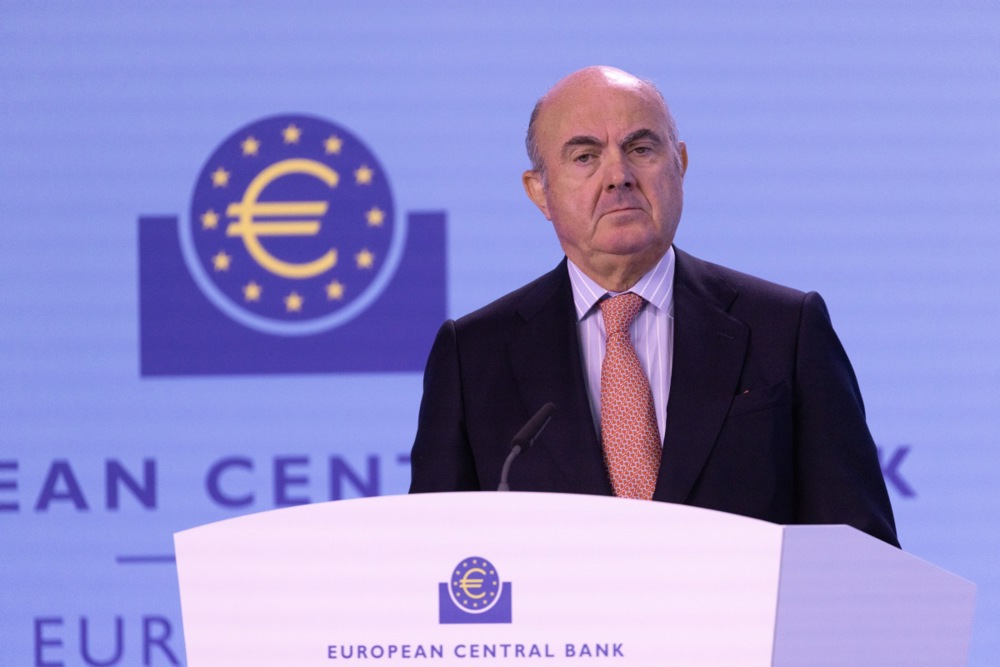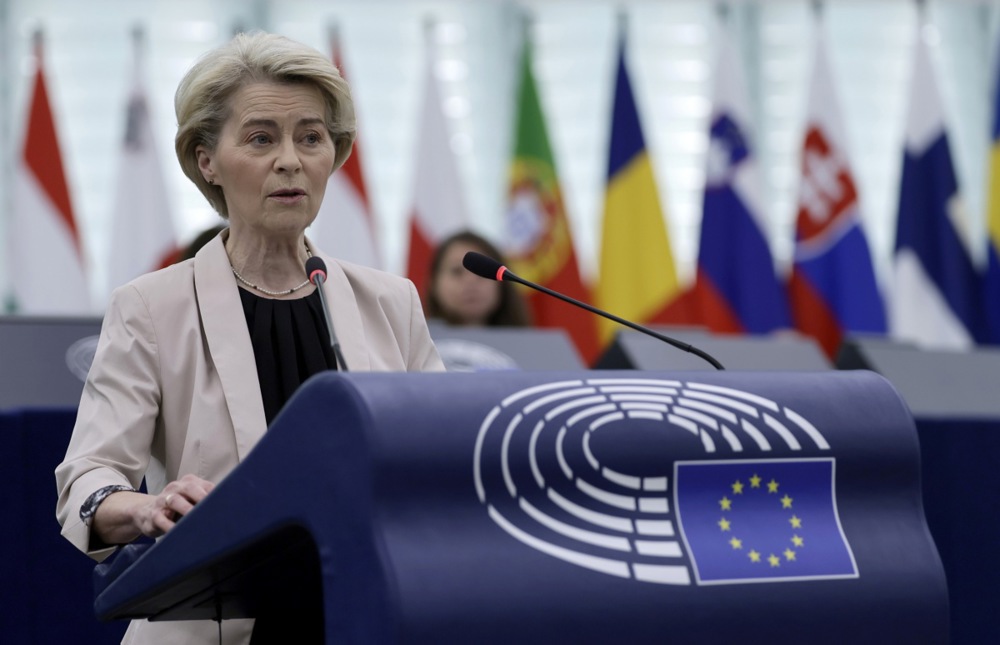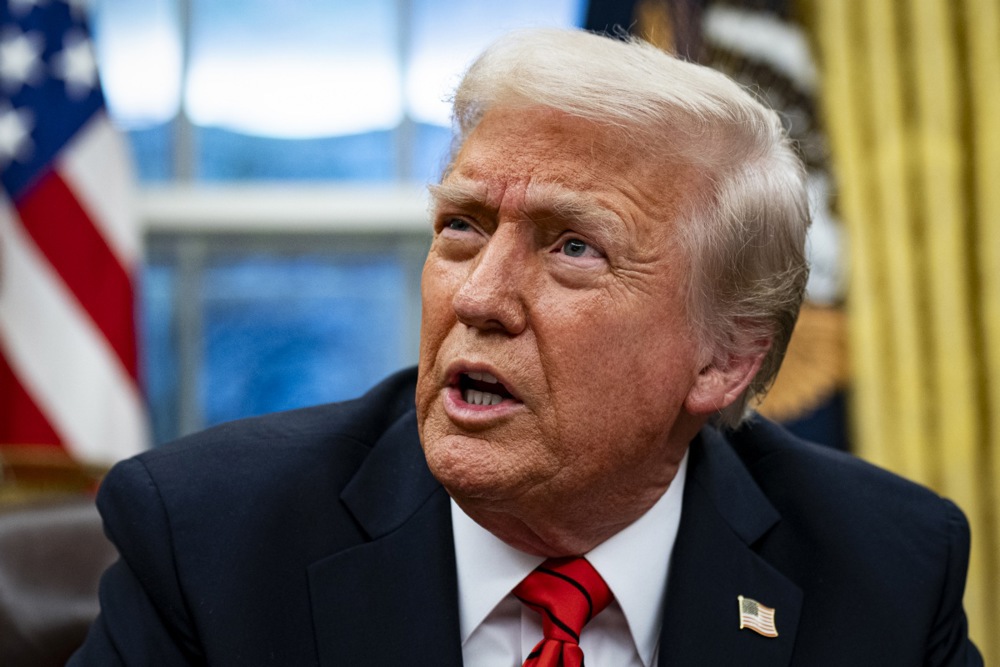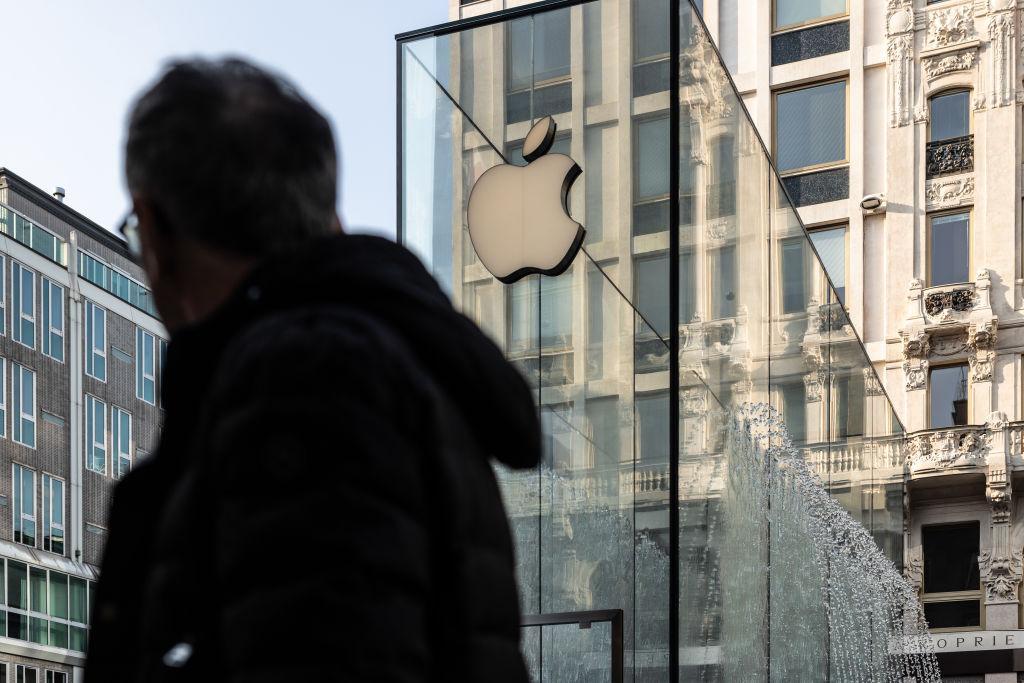With hours to go before US President Donald Trump’s tariffs announcement, European leaders in Brussels, London and Frankfurt have been making last-ditch efforts to change his mind.
The European Commission, the UK Prime Minister Keir Starmer and the European Central Bank (ECB) have issued stark warnings, hoping to sway Trump.
Their message was blunt: These tariffs would not just hit Europe — they would backfire on the US itself. Yet, with the clock ticking, the chances of stopping them were slipping away.
“Everyone in this house, from Commission President to Trade Commissioner, has made very clear we believe that this kind of tariffs do no good to anyone,” EC spokesperson Olof Gill told journalists on the afternoon of April 2.
He emphasised the potential broader economic damage: “We know that they will cause us harm, that they will cause the US economy harm, we also have the strong view that they will have a harmful impact on the global economy”.
That echoed EC President Ursula von der Leyen comments that “tariffs will just fuel inflation, exactly the opposite of what we want to achieve”.
She stressed that US manufacturers would bear the cost. “American factories will pay more for components that are produced in Europe. This will cost jobs”, she said talking to the plenary session of the European Parliament in Strasbourg on April 1.
Starmer expressed similar concerns, stating: “A trade war is in nobody’s interest.”
His Labour government has been in talks with Washington, attempting to mitigate the impact on British industries.
Starmer made it clear that the UK was preparing for various outcomes.“Our decisions will always be guided by our national interests, and that’s why we have prepared for all eventualities,” he said.
ECB President Christine Lagarde pointed to historical failures of tariff wars. “Let’s not forget, quite often those escalations of tariffs, because they prove harmful even for those who inflict it, lead to negotiation tables where people actually sit down and discuss and eventually remove some of those barriers,” she warned.
Gill also stressed a point that has been central in the European Union approach to address the incoming tariffs: The objective was a negotiated solution.
As von der Leyen highlighted it in her speech, this meant both that the EU had “the strength to negotiate”, “the power to push back” and that the EU “will continue to engage at all levels with American counterparts”.
As Gill reiterated on April 2, that was “in order that they understand the full scope as we see it of the potential damage on our economies and our willingness to find outcomes that can benefit us all, rather than hurt us all”.
The EU does possess negotiating “cards”, according to a report on March 20 from the European Council on Foreign Relations.
These include non-tariff trade measures to restrict US imports, such as food and environmental standards (Farm to Fork, CBAM, etc), as well as stricter enforcement of EU digital policy (DMA, DSA, GDPR, and AI Act) and financial legislation.
The EU could also restrict exports of critical technology.
The EU Foreign Subsidies Regulation, meanwhile, allows Brussels to target companies in receipt of foreign subsidies, while the anti-coercion instrument sets out a framework for EU action against alleged economic coercion from any country in line with public international law.
As to whether the US is open to negotiation, Lagarde said she was “negative” about the outcome.
“It will be negative [for] the world … and the density and the durability of the impact will vary depending on the scope, on the products targeted, on how long it lasts, on whether or not there are negotiations,” Reuters reported her as saying.
The EC spokesperson said the response to the soon-to-be-announced tariffs would be made quickly after their revelation, together with the response to the automotive tariffs imposed earlier in March.
Regarding the US steel and aluminium duties on imports from the EU imposed on 12 March, the EC had delayed its tariff response from April 1 to April 13 and was still planning on formulating a separate reaction for that issue, Gill said.





